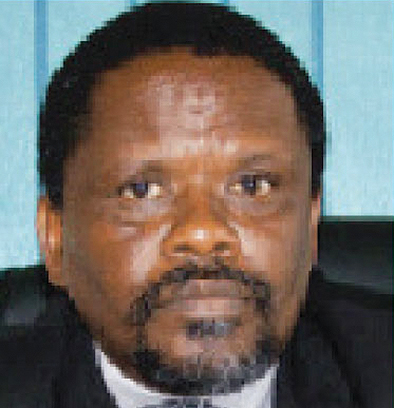
More often than not, it would appear parliamentarians are guided either by the whipping system or sheer party activism. Issues need not be clouded by simple opposing views.
Recently, parliamentarians, among other issues, debated about the firing of Alvord Mabhena from the National Railways of Zimbabwe (NRZ) board chair post. Both sides raised dust over the matter.
The heated debate was triggered by Transport minister Joram Gumbo’s remarks when he asked: “What was special about Engineer Alvord Mabhena’s dismissal as NRZ board chairman?”
While there may be nothing special about Mabhena as a person, there is indeed everything special about the subject matter. First and foremost, NRZ is a strategic parastatal.
Second, both Mabhena and Gumbo hail from Midlands province.
Third, Mabhena’s appointment had some semblance of geographical representation, which is the aim of devolution of power to provinces, as well as balancing regional interests. With the promised funding for reviving NRZ, hopes were now pinned on the board’s progressiveness.
Buhera South MP Joseph Chinotimba (Zanu PF) was livid over the special treatment of Mabhena’s case, compared to thousands who had been terminated on three months’ notice.
In the whole fiasco, a simple point was missed. The issue is not about numbers, but recognition of the usually side-lined provinces of Midlands and Matabeleland.
- Chamisa under fire over US$120K donation
- Mavhunga puts DeMbare into Chibuku quarterfinals
- Pension funds bet on Cabora Bassa oilfields
- Councils defy govt fire tender directive
Keep Reading
Issues of belonging and recognition are critical if the country is to move forward. How does one develop love for a country that has nothing in it for him/her.
A crude survey of top appointments in civil service, parastatals, government departments’ boards clearly point to skewed or biased placements.
One would expect, for example, a fair representation of provinces at all government institutions, especially at respective regions.
The impression given by these skewed appointments could mean that the marginalised provinces are either outcasts, or they do not have people with the pre-requisite academic qualifications. The opposite is true.
The said regions may not have the quantities, but surely they have the qualities, though in limited numbers.
Centuries back, the Red Indians vowed that “No representation, no taxation”. Why would one be taxed for the benefit of another. Currently, there is grumbling about the secessionist agenda. Indirectly or directly marginalisation has propelled the secessionist agenda to its current levels.

The irony being, if the prevailing system cannot be accommodative to other sectors of community, can secessionists be blamed for trying to create a system of their own, that will accommodate and recognise them as relevant cogs to the State development.
Check appointments, promotions and leaders in all spheres of the country’s structures. One would be forgiven of thinking that the sidelined regions don’t belong to Zimbabwe, as its inhabitants don’t feature anywhere.
Any analytical mind and objectivity must be trained to deal with issues and not tissues. In Mabhena’s case, parliamentarians were expected to effectively apply their minds on issues like :-
Is it fair for an incoming minister to overhaul the boards that were appointed by their predecessor, a minister from the same party for that matter?
Do the appointments reflect a fair representation of regions?
What misconduct is dismissible?
Are the said appointments a means of creating jobs for the blue eyed boys?
NRZ is the major transporter of goods and, therefore, any suspicious decisions are bound to raise eyebrows.
It is common sense that haulage trucks are direct competitors to NRZ. Could it be that an attempt to review NRZ threatened someone’s haulage business?
Parliament must not be used as a circus theatre, nor should it be used for settling grudges. What is government policy on appointing boards? These are the issues that Parliament must be seized with.
One may be forgiven for concluding that the delay in implementing devolution of power to provinces is a deliberate move.
Regionalism is good when it is used to empower the region and bad when it is used as a spring board for attacking and denigrating people from other regions.
Parliamentarians need to make a difference between a party hat and a national hat. As lawmakers, they are expected to come up with impartial laws that will stand the test of time.
It is told that one of the crafters of the first Constitution of Zimbabwe had himself in mind, as he penned the Supreme law, yet this was not to be. The nation is looking for top quality debates, free from partisanship, but objective.
In conclusion, many lower jobs demand that potential appointees possess a minimum of five “O” Level subjects. How can one expect a lawmaker to come from the ghetto?
A lawmaker must have an appreciation of current affairs and trends in the world of politics and economics to name a few. There is need to set academic qualifications for one to be a lawmaker.
lMoses Tsimukeni Mahlangu writes in his own capacity and can be reached on [email protected] for comments.










